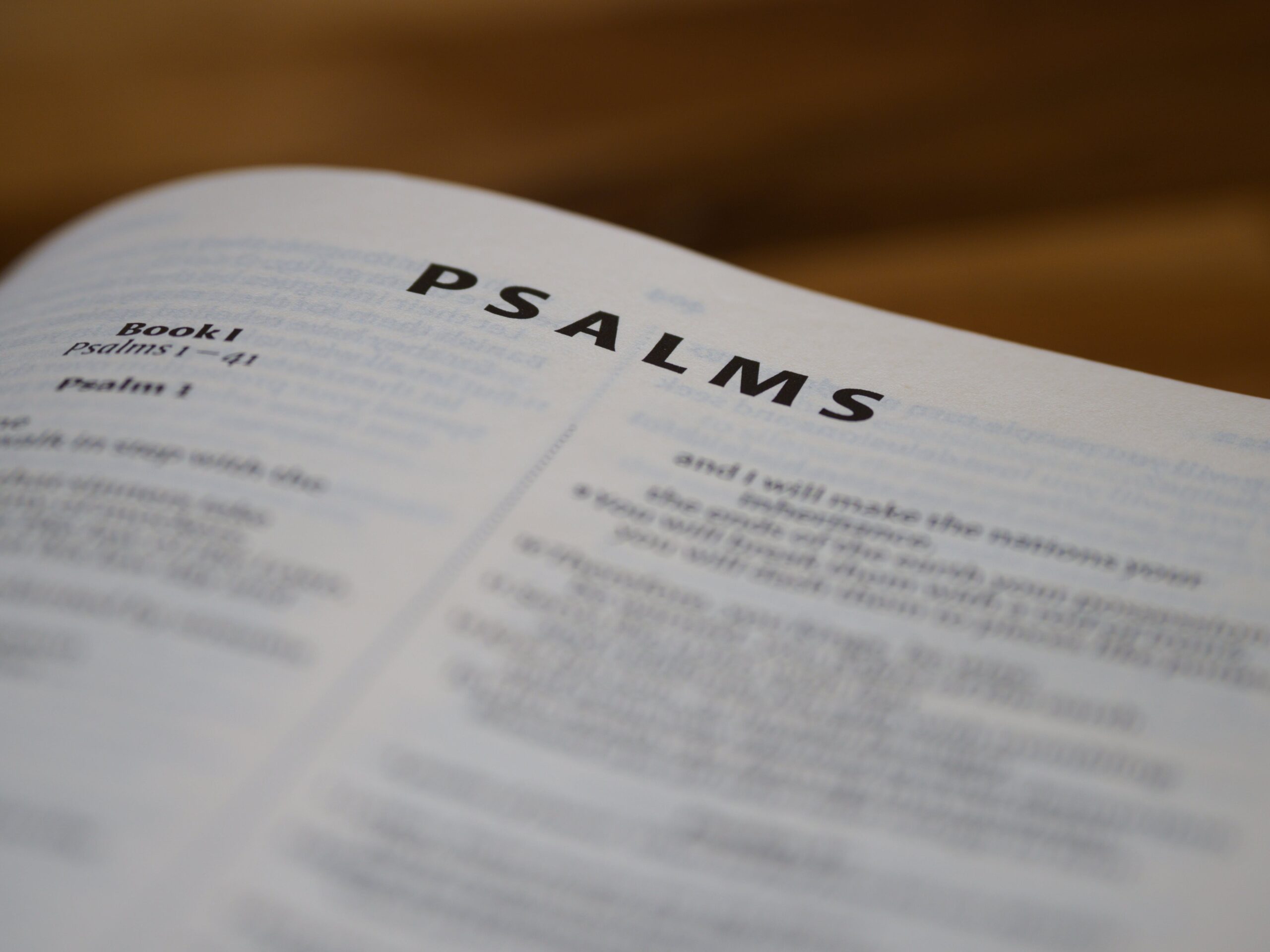Session 1 – Introduction to the Psalms
In our first session we:
-
- Explore the psalms as part of Jewish worship, whilst reflecting on our use of song and liturgy within worship.
- Learn about the psalms as poetry … but not as we know it.
- Discover the ways in which poetry and prose evoke different emotions.
- Reflect on God’s goodness and faithfulness
We discover some of the background to the Psalms and it’s unique place in the Bible.
How was it used within the context of Old Testament worship?
How do we view the Psalms today?

Session 1 Outline – from Powerpoint (in video)
(1) Icebreaker – using the headings to the Psalms only, discover some of the authors of the psalms. Are there any other things you discover? (Answer – the Psalms are arranged in 5 books).
(2) The Psalms as an editted collection, with praise and lament reflecting the chequered history of Israel from King David through to the exile and the building of the Second Temple.
(3) The extensive use of Poetry in the Old Testament and a look at Hebrew poetry.
(4) Reflections through songs which are an important part of Deep Calls To Deep.
The structure of the session comes from the Powerpoint (in the video). You can download the powerpoint here.
Activity 1: Poetry v Prose
Much of the Bible is written as historical narrative. What happened has been recorded in order to be retold to a later audience. The emphasis is on what happened and in what order and so on.
Poetry allows us to break out of this straitjacket and explore emotions and expression.
In this activity, we compare two accounts of the Israelites crossing the Red Sea. One is a historical narrative account (Ex 14) and the other is a wonderful poetic song of praise to God around the same events. How do they differ?
Activity 2: Parallelism & Psalm 1
Hebrew poetry is not about rhyme or rhythm. It is about ideas and how they are developed and linked together.
The process is called ‘parallelism’.
There are three basic forms:
- Saying the same thing but in a slightly different way.
- Saying the same thing but this time expanding or deepening what has been said.
- Providing a contrasting thought with the contrast often marked by the word ‘but’.
Reflection: 'Your goodness is running after me'
‘Goodness of God’: Bethel Music – The song explores the goodness and faithfulness of God and has the chorus based on Psalm 23:6 – ‘Your goodness is running after me, it’s running after me’
This is a great way of expressing the more traditional Bible translation – ‘Surely goodness and mercy will follow me all the days of my life.’
The Hebrew word for ‘follow’ is ‘radaph (raw-daf).It is not a passive following, perhaps at times meandering or lagging behind. It is a very active and almost aggressive word – “I’m coming for you.”
If you go back to Activity 1, the two words highlighted are the same Hebrew word radaph describing the Egyptians pursuing and chasing down the Israelites.
That’s exactly how God’s goodness and mercy are described!
Reflection: Tracing the rainbow through the rain
George Matheson wrote the hymn O Love that will not let me go at a time in his life when he thought he had lost everything.
As we go through Deep Calls To Deep, we will be using one of the lines from this lovely hymn – ‘I trace the rainbow through the rain.’
We start our journey by thinking about how God was actively seeking us and pursuing us before we became Christians.
